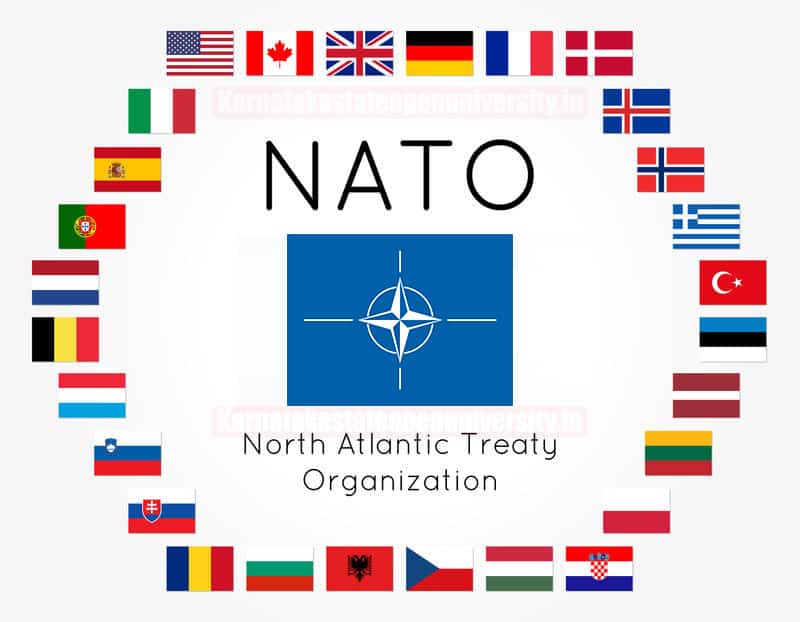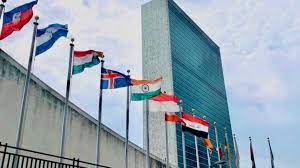The North Atlantic Treaty Organization (NATO) was established in 1949 as a direct response to the Soviet threat during the Cold War. Built upon the principle of collective defence, enshrined in Article 5 of its founding treaty, NATO played a pivotal role in maintaining transatlantic security during the second half of the 20th century. However, in the post-Cold War era, NATO’s relevance has been increasingly questioned due to shifting global power dynamics, emerging security threats, and internal divisions among member states. While NATO remains a significant military alliance, its ability to adapt to contemporary security challenges will determine its continued importance in the evolving world order.
The Cold War’s End and the Loss of a Defined Adversary. NATO was created primarily to counter the Soviet Union and its communist bloc. With the collapse of the USSR in 1991, the alliance lost its primary adversary, creating uncertainty about its purpose. The following decades saw NATO struggling to redefine its role as the global security landscape shifted away from Cold War-style confrontations. While NATO expanded its membership and engaged in various global missions, critics argue that the absence of a direct military threat comparable to the Soviet Union has undermined its necessity.
Reduced Military Engagements and Shifting Priorities. In the post-Cold War era, NATO took on out-of-area missions, notably in the Balkans, Afghanistan, and Libya, demonstrating its role in global security. However, its military engagements have become more restrained in recent years. The withdrawal from Afghanistan in 2021 and the reluctance of many European nations to involve themselves in conflicts beyond their immediate borders signal a decreasing appetite for large-scale NATO-led interventions. This shift has raised questions about NATO’s continued role as an active military force or whether it is becoming more of a political and diplomatic entity.
Evolving Threats: Cyber Warfare, Terrorism, and Hybrid Conflicts. Modern security threats have evolved beyond conventional military conflicts. Cyber warfare, terrorism, pandemics, and economic crises increasingly define global security concerns. NATO has attempted to adapt by enhancing its cyber defence capabilities and counter-terrorism strategies. However, critics argue that these new threats often require diplomatic, economic, and technological responses rather than purely military solutions, making other organisations such as the United Nations (UN) and the European Union (EU) more relevant in addressing such challenges.
Multipolarity and the Shift toward Asia. The global power structure is transitioning from a unipolar world dominated by the United States to a multipolar system in which China, Russia, and other regional actors exert significant influence. This shift challenges NATO’s traditional dominance. The rise of China and its increasing military modernisation, alongside new security alliances like AUKUS (Australia, UK, US) and the Quad (US, India, Japan, Australia), suggest that the Indo-Pacific region is becoming a greater priority for NATO’s key member, the United States (Brookings Institution, 2024). As a result, NATO’s Euro-Atlantic focus risks diminishing in importance, particularly as Washington recalibrates its strategic priorities toward the Indo-Pacific.
Divergent Security Interests among NATO Members. NATO members increasingly have divergent security concerns. While Eastern European countries prioritise the threat from Russia, Western European nations emphasise diplomatic solutions and strategic autonomy. Meanwhile, Turkey pursues its regional agenda in the Middle East, often clashing with broader NATO objectives. These competing interests create friction within the alliance and raise doubts about its long-term cohesion.
Burden-Sharing and Defence Spending Disputes. One of NATO’s most persistent internal challenges is burden-sharing. The 2014 NATO Summit set a target for member states to spend at least 2% of their GDP on defence, yet as of 2023, only 11 out of 31 members met this goal (The Economist, 2024). The United States, which contributes disproportionately to NATO’s military budget, has repeatedly criticised its European allies for failing to uphold their financial commitments. These disparities fuel tensions and questions about NATO’s sustainability if burden-sharing remains unbalanced.
NATO’s Provocative Expansion. Since 1999, NATO has added 14 former Soviet or Warsaw Pact states to its membership, exacerbating tensions with Russia. Critics argue that NATO’s eastward expansion has contributed to geopolitical conflicts, particularly in Ukraine. Russia perceives NATO’s enlargement as a direct security threat, and the 2022 invasion of Ukraine can, in part, be seen as Moscow’s pushback against NATO’s growing footprint in Eastern Europe. While NATO insists on its open-door policy, some analysts caution that continued expansion risks further escalating tensions with Russia without necessarily increasing European security.
The Rise of Alternative Security Frameworks. As NATO grapples with internal divisions, other international alliances emerge as alternative security structures. Organisations like BRICS (Brazil, Russia, India, China, South Africa) and the Shanghai Cooperation Organization (SCO) present non-Western frameworks for economic and security cooperation. The European Union (EU) has also pursued greater military autonomy through initiatives like PESCO (Permanent Structured Cooperation), signalling a potential shift away from US-led security arrangements. If Europe continues to develop independent defence capabilities, NATO’s role as the continent’s primary security guarantor could diminish.
NATO’s Strength: Adaptation and Collective Defence. Despite these challenges, NATO remains the world’s most powerful military alliance, providing collective security and deterrence. Article 5 states that an attack on one member is an attack on all and remains a core pillar of transatlantic security. NATO has also adapted to modern threats by creating rapid response forces, strengthening its cyber defence strategies, and increasing cooperation in hybrid warfare tactics. These adaptations ensure that NATO remains relevant in key areas, even as its global dominance faces competition.
NATO’s Future in an Evolving Global Order. NATO’s relevance in the modern world order is contested. On one hand, the alliance remains a critical security framework for Western democracies, deterring aggression and maintaining transatlantic cohesion. On the other hand, shifting geopolitical priorities, internal divisions, and the rise of alternative security alliances present significant challenges to its continued dominance.
Conclusion. Ultimately, NATO’s future will depend on its ability to adapt to new security threats and navigate internal fractures while remaining a key player in global stability. Whether NATO will evolve to meet the challenges of the 21st century or gradually cede influence to emerging security frameworks remains one of the most pressing questions in contemporary international relations.
Please Enhance the content further with value addition.
For regular updates, please register your email here:-
References and credits
To all the online sites and channels.
Pics Courtesy: Internet
Disclaimer:
Information and data included in the blog are for educational & non-commercial purposes only and have been carefully adapted, excerpted, or edited from reliable and accurate sources. All copyrighted material belongs to respective owners and is provided only for wider dissemination.
References:-
- Andersen, L. R. (2021). The challenges of NATO burden-sharing. Global Affairs, 7(2), 185-202.
- BBC News. (2023). NATO expansion: What it means for global security. Retrieved from [URL]
- Brookings Institution. (2024). NATO and the rise of China: A strategic outlook.
- Chatham House. (2021). The future of NATO: Adapting to a multipolar world.
- European Parliament. (2022). The EU and NATO: Cooperation and challenges.
- NATO. (2023). Cyber security and hybrid warfare initiatives.
- Walt, S. M. (2022). NATO’s role in a changing global order. Foreign Affairs, 101(3), 45–58.


